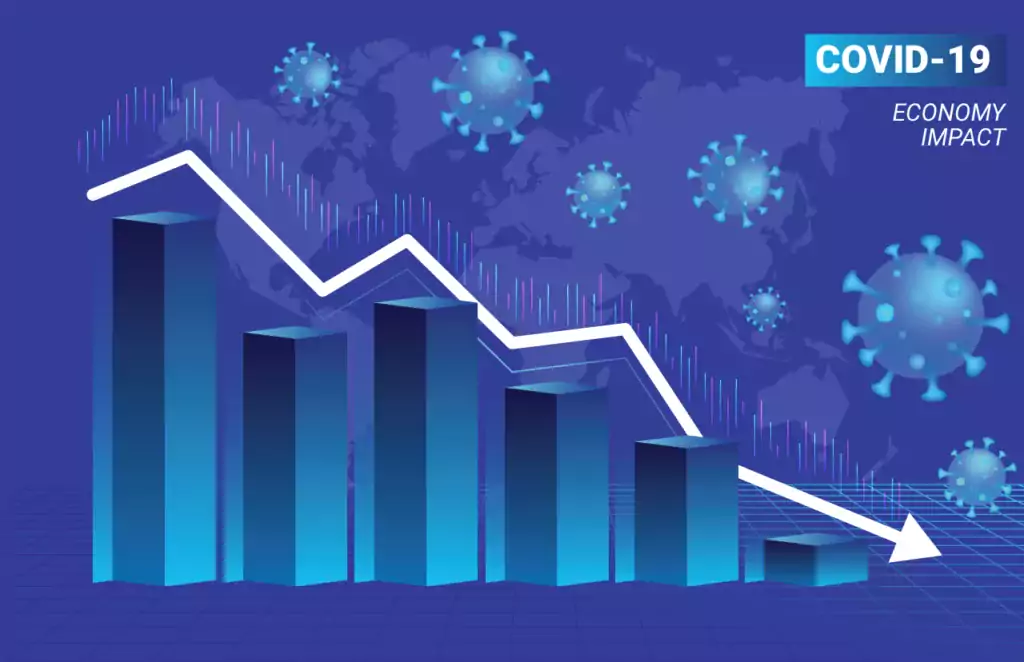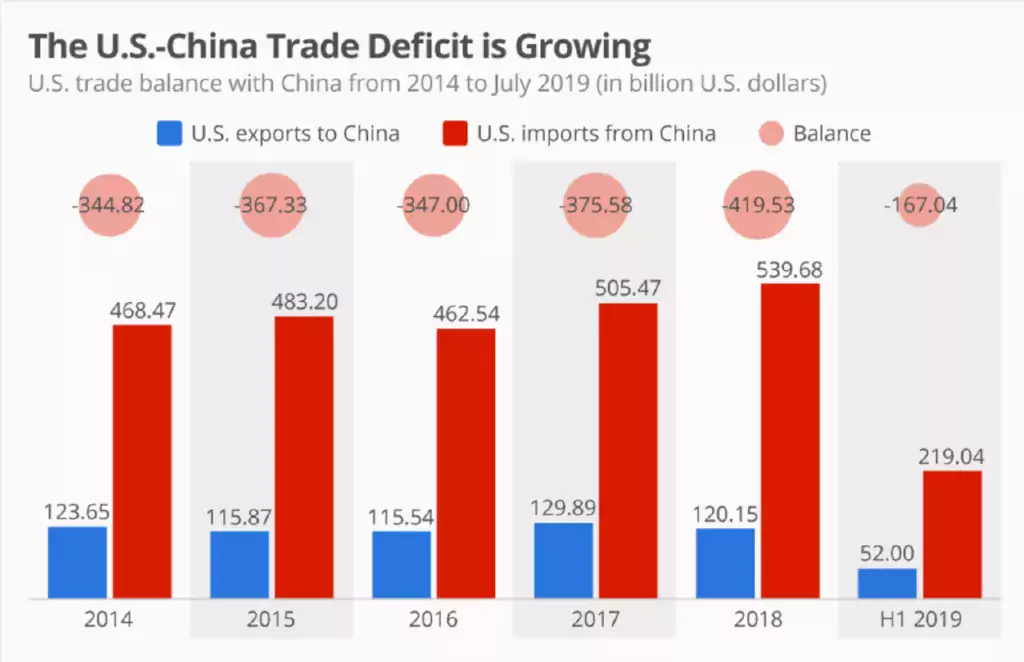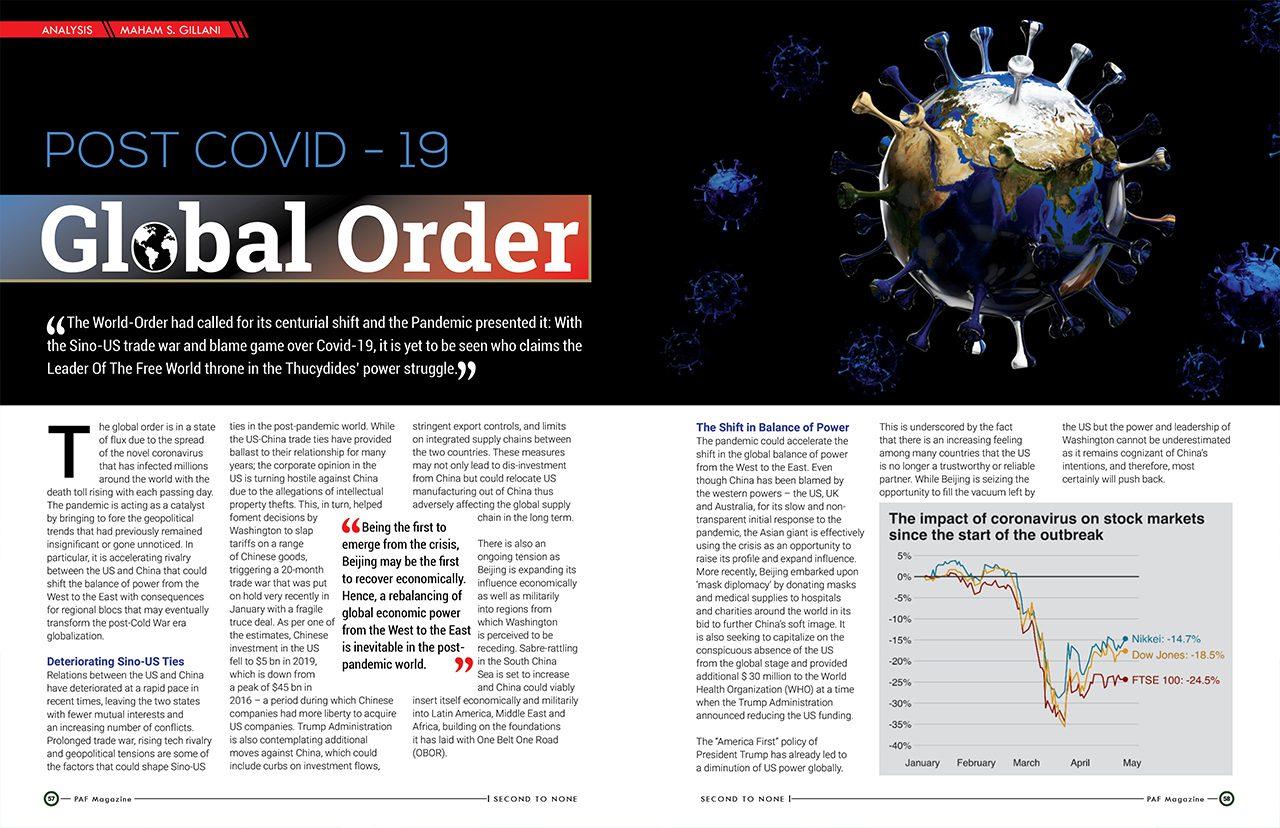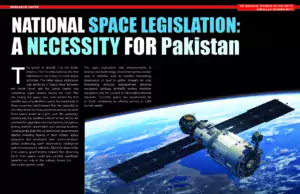The World-Order had called for its centurial shift and the Pandemic presented it: With the Sino-US trade war and blame game over Covid-19, it is yet to be seen who claims the Leader Of The Free World throne in the Thucydides’ power struggle.
The global order is in a state of flux due to the spread of the novel coronavirus that has infected millions around the world with the death toll rising with each passing day. The pandemic is acting as a catalyst by bringing to fore the geopolitical trends that had previously remained insignificant or gone unnoticed. In particular, it is accelerating rivalry between the US and China that could shift the balance of power from the West to the East with consequences for regional blocs that may eventually transform the post-Cold War era globalization.
Deteriorating Sino-US Ties

Relations between the US and China have deteriorated at a rapid pace in recent times, leaving the two states with fewer mutual interests and an increasing number of conflicts. Prolonged trade war, rising tech rivalry and geopolitical tensions are some of the factors that could shape Sino-US ties in the post-pandemic world. While the US-China trade ties have provided ballast to their relationship for many years; the corporate opinion in the US is turning hostile against China due to the allegations of intellectual property thefts. This, in turn, helped foment decisions by Washington to slap tariffs on a range of Chinese goods, triggering a 20-month trade war that was put on hold very recently in January with a fragile truce deal. As per one of the estimates, Chinese investment in the US fell to $5 bn in 2019, which is down from a peak of $45 bn in 2016 – a period during which Chinese companies had more liberty to acquire US companies. Trump Administration is also contemplating additional moves against China, which could include curbs on investment flows, stringent export controls, and limits on integrated supply chains between the two countries. These measures may not only lead to dis-investment from China but could relocate US manufacturing out of China thus adversely affecting the global supply chain in the long term.
There is also an ongoing tension as Beijing is expanding its influence economically as well as militarily into regions from which Washington is perceived to be receding. Sabre-rattling in the South China Sea is set to increase and China could viably insert itself economically and militarily into Latin America, Middle East and Africa, building on the foundations it has laid with One Belt One Road (OBOR).
The Shift in Balance of Power
The pandemic could accelerate the shift in the global balance of power from the West to the East. Even though China has been blamed by the western powers – the US, UK and Australia, for its slow and non-transparent initial response to the pandemic, the Asian giant is effectively using the crisis as an opportunity to raise its profile and expand influence. More recently, Beijing embarked upon ‘mask diplomacy’ by donating masks and medical supplies to hospitals and charities around the world in its bid to further China’s soft image. It is also seeking to capitalize on the conspicuous absence of the US from the global stage and provided additional $ 30 million to the World Health Organization (WHO) at a time when the Trump Administration announced reducing the US funding.

The “America First” policy of President Trump has already led to a diminution of US power globally. This is underscored by the fact that there is an increasing feeling among many countries that the US is no longer a trustworthy or reliable partner. While Beijing is seizing the opportunity to fill the vacuum left by the US but the power and leadership of Washington cannot be underestimated as it remains cognizant of China’s intentions, and therefore, most certainly will push back.
The economic fallout from the Covid-19 would entail years of slow growth for the US and the European economies. This is because of greater dependence on easy money and debt as a consequence of fiscal and monetary policies adopted by these countries to deal with the pandemic crisis. On the flip side, simply by being the first to emerge from the crisis, Beijing may also be the first to recover economically. Therefore, a rebalancing of global economic power from the West to the East is inevitable in the post-pandemic world, unless the West shifts gears and pursues a radically different economic path after the crisis.
The Weakening of the EU
The failure of the EU to mobilize a uniform response to fight the crisis unleashed by the pandemic and the policy of member states to look after the citizens of only their own countries has dealt a massive blow to the EU unity. EU states moved unilaterally taking measures they deemed necessary including, shutting borders, suspending free movement and stopping transport links sans any coordination. In a more disappointing turn of events, Germany and France banned the export of protective gear to anyone including the other EU countries. Italy shut its borders without even notifying the European Commission, as did the Netherlands when it stopped all passenger planes from Italy, which was followed by Spain and Austria.
Lack of solidarity and divisiveness within EU manifested itself more starkly when Italy’s plea for assistance was initially ignored by other European states, allowing China to step in to offer help and hence bolster its global influence. The EU did offer assistance to Italy and other struggling member states after Beijing stepped in, but it was too little, too late, and the damage had already been inflicted. The resentment from this episode is likely to linger on for some time.
As the pandemic spread more widely across the Continent, festering divisions between a wealthier North and a poorer South came to the fore, threatening the fragile balance between divergent nations with closely linked economies. Most nations of Europe’s North are expected to recover faster than their southern counterparts, exacerbating a divergence of fortunes in the eurozone and fuelling political tensions over how to pay for the fallout of the pandemic. Coming immediately after the sovereign debt crisis, the migrant crisis, and the Brexit; the COVID-19 crisis could cause an enduring dent in the EU project and consequently strengthen far-right populist movements within the bloc.
The Retreat of Globalization
The West has been pursuing a liberal, free and truly globalized world order after the demise of the Soviet Union and end of the Cold War. While the global inter-connectedness of goods, capital, services, people, data and ideas has produced irrefutable benefits for the economies world over, the novel coronavirus has bared the underlying perils of overbearing dependence on each other. Nevertheless, the pandemic will not mark the end of the era of globalization but could lead to its transformation in markedly three ways.

First, economies may become less dependent on single points of failure and as a corollary, less dependent on China. Governments and big companies may take measures to diversify the supply of key inputs and shift to regional or domestic production. Protracted trade war with China and advances in automation, robotics and other labour-saving manufacturing technologies may accelerate this development.
Second, economic integration would still take place but may shift from the global to the regional and bilateral level. Experts argue that global multilateral trade talks have not proceeded since Uruguay Round in 1993; instead, states and regional blocs have moved to forge trade agreements and partnerships at their behest. For example, the EU signed separate trade agreements with Japan and South Korea, and likewise, China’s Belt and Road Initiative (BRI) is also not creating global connections, but regional and bilateral ones.
Third, political debates in the West are likely to focus on ‘globalization’s losers’ and means to protect labours and workers from economic damage. The question of how to protect workers without foregoing or undermining the economic benefits offered by globalization, inter alia, a higher standard of living remains a paradox. Therefore, while Covid-19 would mark the end of the post-Cold War era globalization, it would not replace it with isolationism or protectionism. Post-pandemic era would usher a new phase of globalization – the precise nature and contours of this are still evolving.








